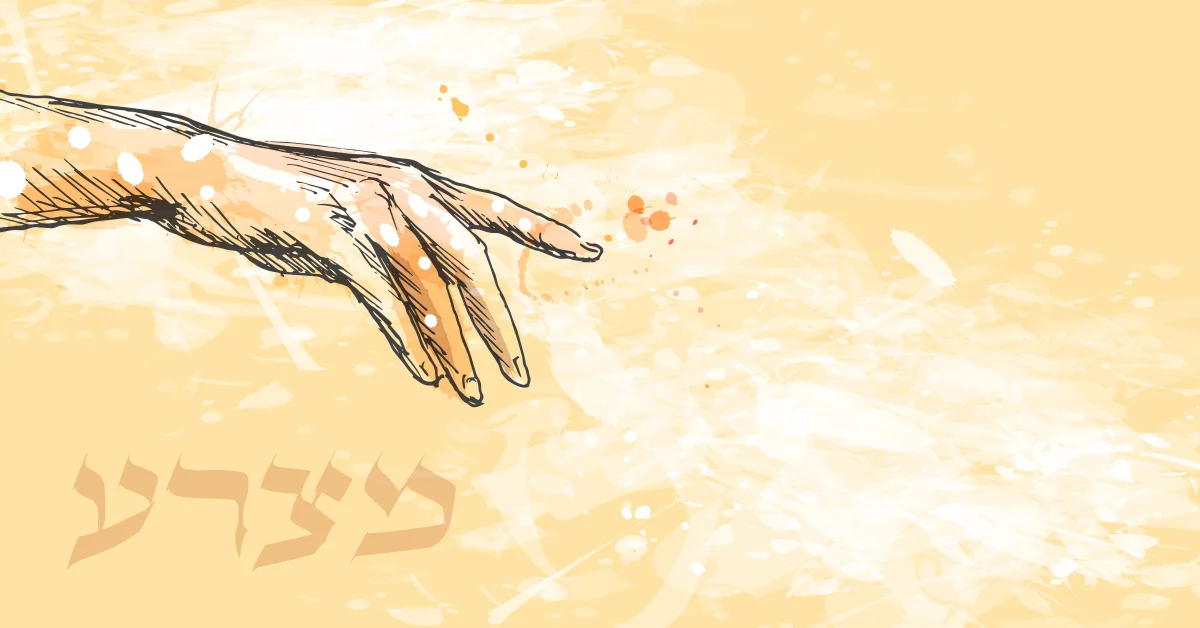Levítico 14, vs 1-32:
Estos versículos tienen que ver con la ley referente a los medios de purificación para los que padecían lepra o ciertos tipos de tumores o alteraciones de la piel.
Levítico 14, vs 34:
אֲשֶׁ֥ר אֲנִ֛י נֹתֵ֥ן לָכֶ֖ם לַאֲחֻזָּ֑ה
o “…que Yo (Dios) doy a ustedes por herencia…”: La tierra prometida de Israel no le pertenecía a Israel porque pertenecía o otras naciones que Dios expulsó de ahí, aunque los filisteos, o actualmente palestinos, no fueron erradicados completamente. Estos tienen derechos de antigüedad sobre los hijos de Israel. Sin embargo, la tierra prometida le fue dada a Israel en concepto de אֲחֻזָּ֑ה o “…herencia…”, en virtud del pacto patriarcal con Dios.
Levítico 14, vs 35-54:
Estos versículos tienen que ver con la ley referente a la lepra o manchas que se encontraban en las paredes de algunas casas, cuando entraran en la tierra prometida y tomaran posesión de ellas.
Levítico 15, vs 1-32:
Estos versículos tienen que ver con la ley referente a las relaciones sexuales, su impureza y su purificación.
Levítico 15, vs 31:
בְּטַמְּאָ֥ם אֶת־מִשְׁכָּנִ֖י אֲשֶׁ֥ר בְּתוֹכָֽם
o “…por haber contaminado mi Tabernáculo el cual está en medio de ellos…”: Las leyes de purificación son destinadas a no contaminar el Tabernáculo de Reunión que iba con ellos. El Tabernáculo representaba la perfección de Dios y requería, para morar en el ámbito de la imperfección del humano, de una serie de desagravios espirituales simbólicos en forma de sacrificios de animales y de otros tipos de expiación. Dios sabe, finalmente, qué se debía de hacer para que fuese posible que el símbolo de la perfección de Dios morara con la imperfección del humano.
Resulta digno de notar que los capítulos 13-14-15 encierran grandes misterios porque son de naturaleza abstracta y oscura. Tanto la impureza como su purificación, son bien difíciles de entender y por ende de interpretar. Yo invito al estudioso a tratar de esforzarse por encontrarle sentido a todo ello. Entiendo que ciertos asuntos espirituales son de naturaleza súper-compleja y de poco o nada serviría tratar de especular acerca de su interpretación. Creo que para interpretar los versículos bíblicos, debe de existir una base en la que apoyar los argumentos. No es aconsejable dar rienda suelta a la imaginación e inventar alejándose demasiado del texto porque la mente humana es de género subjetivo y hay que esforzarse por ser objetivo. Sin ello, se pudiera hacer más perjuicio que beneficio a la verdad de las cosas.
Por otro lado, como no estoy completamente seguro de que los rabinos no “metieron la mano” en la Biblia, tal y como la vemos hoy, no puedo asegurar que absolutamente todo lo que está escrito en ella viene de la revelación de Dios en Sinaí. El día en que se encuentre el Arca del Testimonio y se halle la versión original del Pentateuco que escribiera, Moisés, Israel y la humanidad estarán en medida de poder cotejarla con la Torah de que disponemos hoy y descartar la posibilidad de alteración alguna. Entre tanto una actitud de prudencia es aconsejable. Los que creen en base a fe de que la Torah de hoy viene 100% de Dios están asegurando lo que no es asegurable por falta de pruebas que lo confirmen. A este respecto diré que no es responsable asegurar lo que uno no está en medida de poder demostrar. La fe es un sentimiento de esperanza proyectado por la mente, con el fin de darle seguridad al individuo que no es capaz de vivir en la verdad de la inseguridad permanente en la que el humano vive en este mundo. Para mí, asegurar lo que mis ojos no vieron, o lo que mi mente no comprende, es de alguna manera, actuar irresponsablemente` y correr el peligro de dar falso testimonio.








Ohr HaChaim Yomi – Emor